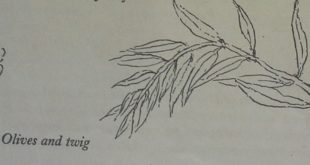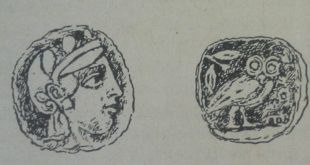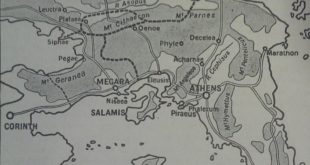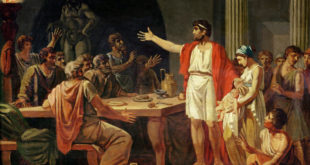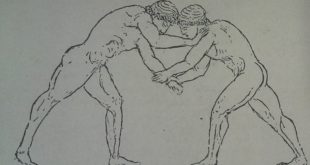From early morning until midnight every great French noble and those who hoped to be great, worked at doing and saying what would please the King in his palace at Versailles. From all over France came these noblemen, for the only road to success was by way of the Grand Monarch’s favour. In 1670 a French bishop described the tremendous power of the King in these words: “Behold an immense people united in a single person; . . you see the image of God in the King, and you have the idea of royal majesty . . . borrowed from …
Read More »The Hapsburgs and Rivals Keep Europe in Turmoil
There he sat in the great hall in the German city of Worms. His bright eyes and wide forehead gave him an air of distinction. You would not quickly forget that face. Before him was gathered an assembly of high ranking nobles and churchmen from many parts of Europe. For this man was Charles V, Emperor of the Holy Roman Empire, Archduke of Austria, ruler of the Netherlands and half of Italy, as well as King of Spain and master of Spain’s vast possessions in the New World. Yet Charles, who belonged to the famous Hapsburg family of Austria, was …
Read More »Europeans Explore and Settle Other Lands
Visitors to the Portuguese city of Lisbon, on a certain day in 1499, would have found the people in a holiday mood. Groups of townsmen who gathered here and there talked excitedly about the arrival of two ships and there was good reason. In the two years since these vessels had sailed down the river and slipped out of sight, they had completed the first trip from Europe around Africa to India and back. Such an event indeed deserved to be celebrated. Not only had the fearless captain of this expedition, Vasco da Gama, performed a great feat of navigation, …
Read More »Kings Compete for Power with Nobles and the Church
Henry Tudor was a patient young man, who waited and watched while civil war raged in England and quarreling lords fought to see who would be king. He waited safely in France, biding his time until his spies told him the hour had come to strike. Then from northern France he crossed the English Channel with 2000 soldiers. Ahead of Henry and his soldiers had gone his agents, who sought to weaken the position of England’s King, Richard III. Henry’s agents had plotted secretly with some of Richard’s supporters, lords who led small armies of their own. That was why …
Read More »The Revival of Town Life and the Growth of Learning
Pierre watched the merchant caravan clatter down the narrow dirt road that led through the manor. Pack mules threaded their way to avoid the deep puddles, while the horses strained as they pulled the creaking two wheeled carts. Pierre envied the merchants as well as the sturdy bowmen who guarded the caravan. During his seventeen years Pierre had never been more than a few miles from the manor where he had been born a serf. He was not free to move around as were these merchants who were city folk. Was it true, as Pierre had heard, that a serf …
Read More »Solon
One of the young Athenians who must have taken a good deal of interest in Draco’s writing down of the laws was Solon. He came of a good family. His father had been extravagant and this had prompted Solon to become a foreign trader in order to repair the family fortunes. There was no question of his considering himself one of the oppressed. He was a “have” not a “have-not”. Yet Solon was destined to repeal almost all of Draco’s laws and to set Athens on the road to democracy. We first meet Solon as a poet, patriot and soldier. …
Read More »Athens
The legend of Theseus and the Minotaur suggests that Athens had dealings with Crete during the Minoan and Mycenaean Ages. We have no written history of that time, though the discoveries of archaeologists show that the Acropolis, a rocky mass 512 feet high, already had fortifications like those found at Tiryns and Mycenae. At the time of the first Olympiad (776 B.C.) there may still have been a King upon the throne, but at Athens, as in many other Greek states, government by Kings gave way about that time to government by the nobles. Monarchy, that is to say, gave …
Read More »A Spartan grows Up
A Spartan child was examined at birth. A healthy infant was allowed to live. Weaklings were not wanted. They were left in the mountains to die. (Exposure of unwanted children was not peculiar to Sparta. Even civilized 5th-century Athenians practised it.) At the age of seven a Spartan boy left home. His period of family life was finished. Thereafter he would be a member of a community. In modern terms, he would always be either at a boarding school or on military service. In the “pack”, as it was called, the seven-year-old newcomer quickly learned obedience. He had to act …
Read More »Sparta
This striking difference in the way Athens and Sparta treated their victorious athletes reflects a striking difference between the states themselves. Neither was important as a coloniser. But during the 6th and 5th centuries they occupy the centre of the stage. At Sparta living was hard; hence the adjective “Spartan”. In the Mycenaean Age, when, according to legend, Menelaus was King of Sparta and Helen was his queen, the place had not yet gained this reputation for hardness, which was a result of the Dorian invasion. The invaders found the valley of Lacedaemon attractive. They settled there and made the …
Read More »The Olympic Games
At Olympia every four years Olympic games were held in which any Greek was entitled to take part. It is not known when the first Olympic games were held, but they were said to have been revived in the year 776 B.C. and the Greeks used that year from which to reckon dates. The period of four years between each celebration of the olympic games was called an Olympiad. When therefore a Greek writer says something happened in the year of the . . . Olympiad we can calculate the year according to our system and put it down as …
Read More »




